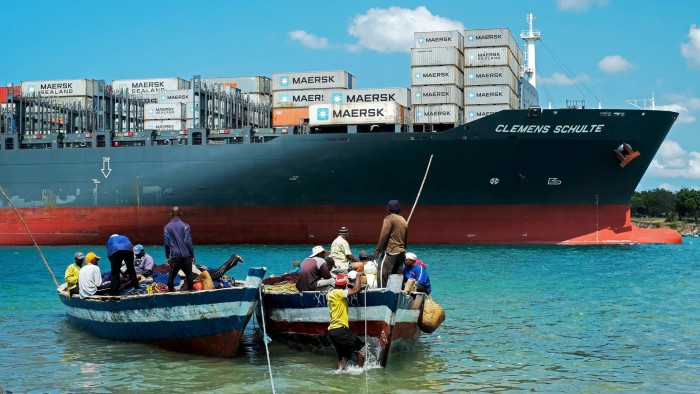Unlock the Editor’s Digest for free
Africa has rarely been at the top of the world’s agenda. But in spite of its lack of obvious economic or strategic clout, many African nations are being courted by countries as varied as Turkey, Brazil, and Russia. The interest of such “middle powers” — reflected in sprouting Turkish embassies, swanky Africa summits, and high-profile visits — presents Africa’s leaders with greater choices on investment and strategic partners.
As reported in a Financial Times series, this pick-and-mix world creates opportunities that, if cleverly exploited, could help countries break free of poverty. They could strike better deals on vital infrastructure projects or insist that commodity deals be accompanied by domestic processing of raw materials. Leaders need to accelerate the mostly theoretical African Continental Free Trade Area, which alone can transform fragmented economies into an attractive single market.
For many years, former colonial powers have struggled to engage productively with the continent. Outside a few industries like oil and mining, Britain treated Africa largely as a recipient of aid administered through the now abolished Department of International Development. The French clung on more tenaciously, interfering in politics and business. They have paid the price. In recent years, an anti-francophone wave has swept across the Sahel. French troops have been ejected from Burkina Faso, Mali, and Niger.
The Americans became increasingly disengaged after the cold war. Investors were dissuaded by distance and strict anti-bribery legislation. Washington viewed Africa almost exclusively through the prism of security. There have been stuttering signs of US re-engagement under President Joe Biden.
Still, the relative decline of US and European influence has created a vacuum. That was filled initially by China and in its wake a host of middle powers, including India and the Gulf states. Africa offers resources and votes at the UN. In the long run, it promises markets. By 2050, there will be 2.5bn Africans, half under 25. If they attain even a modest standard of living, that is a lot of consumers. Competition has also intensified for energy-transition minerals such as cobalt, lithium, manganese, and copper.
From Africa’s perspective, new interest means options: Tanzania chose a Dubai-operated port; Ghana and Niger a Turkish-built airport terminal; and the Central African Republic and Mali Russian mercenaries.
With choices come dangers. The history of exploitation by colonial powers is real. But European investments in Africa are subject to domestic scrutiny entirely lacking in, say, China. Though Chinese investors have built valuable infrastructure, their logging companies and fishing fleets have been rapacious.
Loading up on debt from China has also contributed to a wave of defaults from Zambia to Ethiopia. Too many investments have been white elephants. A $4bn Chinese railway in Kenya has done more for political cronies than it has for economic productivity.
Middle powers also bring fresh security entanglements. UAE meddling in Sudan’s war is prolonging one of the world’s worst humanitarian catastrophes. Russian mercenaries, who take payment in gold and diamonds, offer nothing in terms of economic or social development. As protesters in Kenya have pointed out, African leaders too often act in their interests, not in that of national development.
Competition in Africa holds the prospect for more growth, more manufacturing, and more jobs. But if new patterns of engagement offer an opportunity, it is one that, so far, most African governments are squandering.
Letter in response to this editorial:
An appointment with consequences for Africa / From Salim Lone, Former Spokesman for Raila Odinga, Kenya’s Prime Minister (2008-2013), Princeton, NJ, US
Source: Financial Times, Africa News Today
This article has been rewritten and restructured for publication on a WordPress platform while maintaining the original HTML tags, HTML headings, and key points as a reference.







